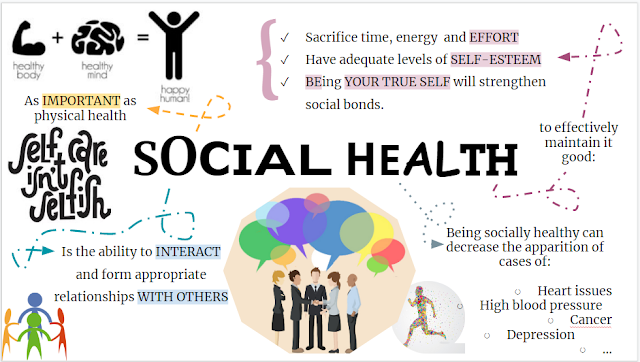BENVINGUTS!
Benvinguts al nostre blog de Ciències del Món Contemporani (CMC). Publicarem en aquest blog tot el que farem durant aquest any: comentaris, conclusions i més.
Esperem que us agradi!

domingo, 28 de abril de 2019
10th TEXT COMMENTARY: Scientists Use Nanotechnology To Give Mice Temporary "Night Vision" - Esther Salvador
HEADER
Scientists Use Nanotechnology To Give Mice Temporary "Night Vision"
Scientists Use Nanotechnology To Give Mice Temporary "Night Vision"
SUMMARY
Researchers have given mice night vision by inserting nanoparticles into their eyes. It may be possible to use on humans someday.
Most mammals can only see from 400 to 700 nanometers of the electromagnetic spectrum, called visible light. The eyes can't absorb longer nor shorter wavelength, so the information doesn't arrive to the brain and it can't be processed. By injecting this nanoparticles mice are allowed to see infrared light, which allows seeing the heat of living things for example.
The injection contains nanoantennae (nanoscopic electromagnetic collectors designed to absorb specific wavelength) to provide mice to see beyond their visible spectrum of light. It doesn't interfere in seeing during the day and the effects of this injections last two weeks and then wears off without leaving permanent side effects.
The lectin conjugated nanoparticles, contained in the injection, guides the nanoantenne sticking to the outside of retinal photoreceptors in the eyes. It provides the eye to absorb infrared light so the brain can process it.
This kind of technology allows scientists to study the responses of the brain depending on visual signals, and it's something that may help color blindness.
We know this experiment actually works because of the responses of the mice during nighttime. They could find something in the same way they could during the day.
It is thought this is a great advance in the field of biotechnology providing critical applications. We may be capable of seeing all the information we can't see in the universe.
LINK OR REFERENCE
Researchers have given mice night vision by inserting nanoparticles into their eyes. It may be possible to use on humans someday.
Most mammals can only see from 400 to 700 nanometers of the electromagnetic spectrum, called visible light. The eyes can't absorb longer nor shorter wavelength, so the information doesn't arrive to the brain and it can't be processed. By injecting this nanoparticles mice are allowed to see infrared light, which allows seeing the heat of living things for example.
The injection contains nanoantennae (nanoscopic electromagnetic collectors designed to absorb specific wavelength) to provide mice to see beyond their visible spectrum of light. It doesn't interfere in seeing during the day and the effects of this injections last two weeks and then wears off without leaving permanent side effects.
The lectin conjugated nanoparticles, contained in the injection, guides the nanoantenne sticking to the outside of retinal photoreceptors in the eyes. It provides the eye to absorb infrared light so the brain can process it.
This kind of technology allows scientists to study the responses of the brain depending on visual signals, and it's something that may help color blindness.
We know this experiment actually works because of the responses of the mice during nighttime. They could find something in the same way they could during the day.
It is thought this is a great advance in the field of biotechnology providing critical applications. We may be capable of seeing all the information we can't see in the universe.
LINK OR REFERENCE
https://www.iflscience.com/technology/scientists-use-nanotechnology-to-give-mice-temporary-night-vision/
PUBLICATION DATE
PUBLICATION DATE
1st of March, 2019
SCIENTIFIC SCOPE
SCIENTIFIC SCOPE
BIOTECHNOLOGY
TEXT COMMENTARY
I think that with this technology we can see things we couldn't with our naked eyes and expand our knowledge in this field. It's a development in the vision field that may help people who have color blindness.
The side effects of this technology may not be permanent but they should be investigated more deeply before testing on human beings.
When science developes there are both negative and positive things. There may be people who agree and there may be people who don't agree with the methods or purposes, but it's still science development. In this case it's the same.
Although I don't really like the idea of changing the nature of our bodies I do think this may be helpful for those who have some kind of sight disease and to expand the knowledge of the things we can not see.
The side effects of this technology may not be permanent but they should be investigated more deeply before testing on human beings.
When science developes there are both negative and positive things. There may be people who agree and there may be people who don't agree with the methods or purposes, but it's still science development. In this case it's the same.
Although I don't really like the idea of changing the nature of our bodies I do think this may be helpful for those who have some kind of sight disease and to expand the knowledge of the things we can not see.
GLOSSARY
None needed
sábado, 27 de abril de 2019
Notícia 10: Els gats saben el seu nom, encara que fagin que no
-
Heading:
Cats Know Their Own Names, Even If They Pretend Not To
-
Summary:
Not
so many studies appear about how do cats interacts and communicate
with us or even if they can understand us. But
in
Japan, where
cats
are
generally preferred than dogs are
as
there are Cat Cafes,
Atsuko Kaito from the Sophia University of Tokyo has studied the
capacity of cats to distinguish their name
from other words. The investigator came to the conclusion that cats
can know their own names and even pretend that they do not.
Other
studies or observations on cats came to the conclusion that cats have
the ability to comprehend some of our words as they move their ears
and heads to ear it better. Kaito's study also came to the
conclusions that cats could understand their names as they moved
their ears more strongly that to other words.
Cat
owners can also recognize that cat can sense human's emotions and act
according to them. Cats are also proven to recognize the voices of
their closest humans and distinguish them from the voices of
strangers.
In
conclusion, investigators and cat owners can agree that cats are way
more complex than we could ever think, though they act as a
independent being that doesn't need anyone.
-
Link or reference:
https://www.iflscience.com/plants-and-animals/cats-know-their-own-names-even-if-they-pretend-not-to/
-
Publication date:
April
4th
2019
-
Scientific field:
Animals
-
Glossary:
-
Cat Cafes: places, usually in Japan, where you can order a coffee,
and then drink it while accompanied with a cat. In the Cafe, there
are a lot of cats, and all of them are very friendly.
-
Text commentary:
There
have a lot of studies about how dogs can interact and communicate
with us, and even understand some clear instructions or specific
voice tones. But, not so many studies appear about how do cats
interacts and communicate with us or even if they can understand us.
According
to this new study, cats
are more smart than we all think as they can recognize their names
when said and act like they don't know anything about it.
I
chose to comment this new because it makes me feel interested and
intrigued
about how intelligent
are the animals, specially the ones we got in our houses as pets.
I
have been owning a cat as a pet for 10 years and I have to admit that
I got attached to him. Even though he isn't disposed to be petted
sometimes, he tries to cuddle all the time.
viernes, 26 de abril de 2019
9th text commentary: Magic gloves let you communicate in sign language
Magic gloves let you communicate in sign language
Summary: This magic creation started with a technology enthusiastic called Roy Allela. With 25 years, he's been able to translate the movements of the tongue from a deaf person into audio. This invention it's pretty useful because you can make a deaf person able to talk in a certain way that they couldn't be able ot without it. It's also really useful in places where sign language isn't much of a thig still and they need it for communication. For example in Kenia, that's where Roy comes from.
Nowadays it's starting to spread really fast this product, and it only just begun. We hope to see more inventions from this genius.
Link or reference: https://www.elperiodico.cat/ca/extra/20190306/guants-intelligents-tradueixen-llengua-signes-al-parla-7340245
Date: 06/03/2019
Scientific scope: Technologic
Suscribirse a:
Entradas (Atom)



